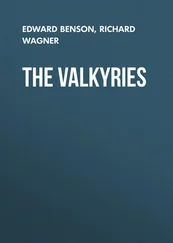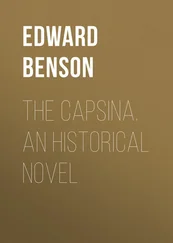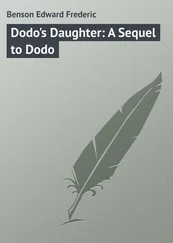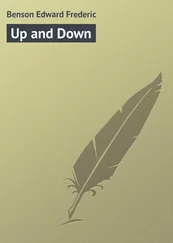Edward Benson - Thorley Weir
Здесь есть возможность читать онлайн «Edward Benson - Thorley Weir» — ознакомительный отрывок электронной книги совершенно бесплатно, а после прочтения отрывка купить полную версию. В некоторых случаях можно слушать аудио, скачать через торрент в формате fb2 и присутствует краткое содержание. Жанр: foreign_prose, на английском языке. Описание произведения, (предисловие) а так же отзывы посетителей доступны на портале библиотеки ЛибКат.
- Название:Thorley Weir
- Автор:
- Жанр:
- Год:неизвестен
- ISBN:нет данных
- Рейтинг книги:3 / 5. Голосов: 1
-
Избранное:Добавить в избранное
- Отзывы:
-
Ваша оценка:
- 60
- 1
- 2
- 3
- 4
- 5
Thorley Weir: краткое содержание, описание и аннотация
Предлагаем к чтению аннотацию, описание, краткое содержание или предисловие (зависит от того, что написал сам автор книги «Thorley Weir»). Если вы не нашли необходимую информацию о книге — напишите в комментариях, мы постараемся отыскать её.
Thorley Weir — читать онлайн ознакомительный отрывок
Ниже представлен текст книги, разбитый по страницам. Система сохранения места последней прочитанной страницы, позволяет с удобством читать онлайн бесплатно книгу «Thorley Weir», без необходимости каждый раз заново искать на чём Вы остановились. Поставьте закладку, и сможете в любой момент перейти на страницу, на которой закончили чтение.
Интервал:
Закладка:
Craddock, as has been said, had a mind profoundly critical and appreciative: he had also quite distinct and segregate, an astonishing flair for perceiving what the public would appreciate. Often he bought pictures which from an artistic point of view he thought frankly contemptible because he saw signs so subtle that they were instinctively perceived rather than reasoned – that the public was going to see something in either an old outworn mode, or in some new and abominable trickery. He then transferred his purchases to Thistleton's Gallery, and gladly parted with them on advantageous terms. But this flair of his was by no means confined to mere pictorial representations, and he was always glad to read a novel or a play in manuscript, with a view to purchasing it himself, and disposing of his acquired rights to publisher or playwright. Living as he publicly did in the centre of things, an assiduous diner out and frequenter of fashionable stair-cases, he yet had a quiet and secret life of his own as distinct from the other as are the lives of inhabitants in adjoining houses, whose circle of friends are as diverse as bishops from ballet-dancers. He preferred to deal in the work of men who were young or unknown, and at present had not been able to get producers for their possible masterpieces. He was thus often able by liberal offers to secure an option of purchase (at a specified figure) over the output of their next few years. Often to the sick-heartedness of their deferred hopes, such prospects seemed dictated by a princely liberality, and they were gladly accepted. Scores of such plays he read and found wanting, but every now and then he came across something which with judicious handling and backed by the undoubted influence he had with the public through the press, he felt sure he could waft into desirable havens. Only this morning by the weir-side he had found a gem of very pure ray, which he believed to be easily obtainable, and now as he read this manuscript in the train, he fancied that his jewel-box need not be locked up again yet. The public he thought to be tired of problem-dramas: they liked their thinking to be peptonized for them, and presented in a soft digestible form. Just at present, too, they had no use for high romance on the one hand, or, on the other, subtle situations and delicate unravellings. They wanted to be shown the sort of thing, that, with a little laughter and no tears, might suitably happen to perfectly commonplace, undistinguished (though not indistinguishable) persons, and in this comedy of suburban villadom, with curates and stockbrokers and churchwardens behaving naturally and about as humorously as they might be expected to behave without straining themselves, he felt sure that he held in his hand a potential success on a large scale.
The author was young and desperately poor: he had already had a play on the boards at the first night of which Arthur Craddock had been present, which had scored as complete a failure as could possibly have been desired to produce suitable humility in a young man. But Craddock, who always thought for himself instead of accepting the opinions of others, had seen what good writing there was in it, how curiously deft was the handling of the material, and knew that the failure was largely due to the choice of subject, though ten years ago it would probably have been welcomed as vigorously as it was now condemned. It was an excellent play of ten years ago, or perhaps ten years to come, with its lurid story too difficult for the indolent theatre-goer of this particular year to grasp, and its climax of inextricable misery. He had therefore immediately written to Frank Armstrong, the author, and at an ensuing interview told him what, in his opinion, were the lines on which to build a popular success. Then, guessing, or, rather knowing, that Armstrong must have attempted drama many times before he had produced so mature a piece of work as the unfortunate "Lane Without a Turning," he said:
"I daresay you have something in your desk at home, rather like what I have been sketching to you, which you have very likely failed to get produced before now. Send it to me, and let me read it."
It was this play "Easter-Eggs" which Craddock finished as the train slowed down into Paddington Station. It could not be described as so fine a play as that which had achieved so complete a failure, but it had all that the other lacked in popular and effective sentiment. Even to a man of Craddock's experience in the want of discernment in theatrical managers, it was quite astounding that it had ever been refused, but he could guess why this had been its fate. For there was no "star-part" in it; there was no character, overwhelmingly conspicuous, who could dominate the whole play and turn it into a "one-man" show. The success of it must depend on level competent acting, without limelight and slow music. It was a domestic drama without villain or hero or dominating personality, and when he again read over the list of acting managers to whom Frank Armstrong had submitted it, he saw how absurd it was to suppose that Tranby or Akroyd or Miss Loughton could ever have considered its production. But he saw also how a company of perfectly-unknown artists could admirably present it, with a great saving of salaries. It needed moderate talent evenly distributed, and one part mishandled would wreck it as surely as would some ranting actor-manager who tried to force a dominant personality into the play, and only succeeded in upsetting the whole careful balance of it. Even as Craddock drove back to his sumptuous and airless flat in Berkeley Square he jotted down a half-dozen names of those who filled minor parts in star-plays quite excellently. He wanted them without the stars.
And then quite suddenly, his mind, usually so obedient, bolted, and proceeded at top-speed in quite another direction. Without intention, he found himself wondering what Joyce was doing, whether she would have told her father about his proposal, or confided in that astutest of grandmothers, whether she was in the punt with panting dogs, or still troubled with the undoubted indisposition of Buz, who had not been at all well, so she had told him, this last day or two. Her life seemed to him a deplorable waste of heavenly maidenhood, partly owing to a selfish father, partly, now at least, because she had not consented to waste it no longer. Youth lasted so short a time and its possessors so often squandered it on things that profited not, ailing dogs, for instance, and swans' nests among the reeds.
Then he caught sight of his own large face in the mirror of his motor, and felt terribly old. He, too, had squandered his youth in the amassing of knowledge, in all that could have been acquired when the leap of the blood thrilled less imperatively, in the passion devoted to passionless things, in the mere acquisition of wealth, in the formation of his unerring taste and acumen. But he knew that his blood had tuned itself to a brisker and more virile pulse, since Joyce had shaken her head and smiled, and been a little troubled. Or was it over the indisposition of Buz that she was troubled?
Then, arriving at his flat, he became his own man again, and cordially telephoned to Frank Armstrong to have lunch with him.
CHAPTER III
An hour later Frank Armstrong was sitting opposite Craddock eating lunch with the steadfast and business-like air of a man who was not only hungry now, but knew from long experience that it was prudent to eat whenever edibles could be had for nothing. Some minutes before Craddock had suggested a slice of cold meat to give solidity to the very light repast that was so suitable to the heat of the day, and since then Armstrong had been consuming ham and firm pieces of bread without pause or speech. But nobody was less greedy than he; only, for years of his life he had been among the habitually hungry. In appearance he was rugged and potentially fierce: a great shock of black hair crowned a forehead that projected like a pent-house over deep-set angry eyes, and it might be guessed that he was a person both easy and awkward to quarrel with, for his expression was suspicious and resentful, as of some wild beast, accustomed to ill-usage, but whom ill-usage had altogether failed in taming. But though this ugliness of expression was certainly the predominant characteristic of that strong distrustful face, a less casual observer might easily form the conclusion that there were better things below, a certain eagerness, a certain patience, a certain sensibility.
Читать дальшеИнтервал:
Закладка:
Похожие книги на «Thorley Weir»
Представляем Вашему вниманию похожие книги на «Thorley Weir» списком для выбора. Мы отобрали схожую по названию и смыслу литературу в надежде предоставить читателям больше вариантов отыскать новые, интересные, ещё непрочитанные произведения.
Обсуждение, отзывы о книге «Thorley Weir» и просто собственные мнения читателей. Оставьте ваши комментарии, напишите, что Вы думаете о произведении, его смысле или главных героях. Укажите что конкретно понравилось, а что нет, и почему Вы так считаете.












